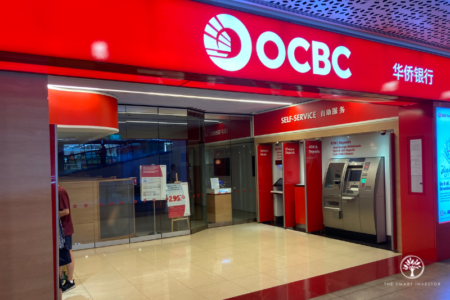It’s almost that time of the year again.
I’m talking about earnings season, of course.
Four times a year, you as an investor get a chance to review and assess how your portfolio companies are performing.
REITs such as CapitaLand Mall Trust (SGX: C38U) and Keppel DC REIT (SGX: AJBU) have already reported their third-quarter business updates.
However, most investors will wait with bated breath for the titans of the Straits Times Index (SGX: ^STI), the local banks, to report their earnings.
Our three local banks are DBS Group Holdings Ltd (SGX: D05), United Overseas Bank Limited (SGX: U11) and OCBC Ltd (SGX: O39).
There are good reasons for tracking the banks’ earnings.
Banks act as a barometer of a country’s economy. By observing their financial performance, you can get a glimpse of how the businesses as a whole are coping with this pandemic.
Our local banks also make up the majority of the index’s weightage.
For those tracking index funds that mirror our Straits Times Index, the performance of the banks has a disproportionate bearing on the direction the index will take in the coming months.
Finally, income-seeking investors who rely on the banks for steady dividends will wish to get a sense of whether banks can continue to maintain them.
Here are some areas that you should keep your eyes peeled for when the banks release their earnings in early November.
Moratorium loans
Last week, we wrote about the Monetary Authority of Singapore (MAS) introducing a slew of measures to relieve the financial burden for companies and individuals who are struggling with their loan repayments.
These measures involve the extension of debt moratoriums, defined as a deferral of the time when these loans need to be paid off.
This Extended Support Scheme, as it is known as, allows small and medium businesses to defer up to 80% of their principal repayments for up to 30 June 2021.
Investors will be curious to know the exposure of each bank to such moratorium loans, and what the impact will be on the banks’ earnings if any.
Supposedly, DBS has the lowest exposure at less than 5% of its loan book, while UOB has the highest exposure at 15%+.
These numbers are, however, based on the second quarter’s earnings.
With the third quarter’s earnings coming up, these percentages can then be updated, and investors appraised of how the banks are managing these loans.
It’s also helpful to read about any implications the MAS measures may have on both loan quality and the non-performing loans (NPL) ratio.
Net interest margin
Another closely watched financial metric will be the banks’ net interest margin or NIM.
The NIM is the margin that the bank enjoys by pricing its loans at a higher rate compared to the interest rate it pays out in deposits.
Banks’ top-lines are very sensitive to this margin as the bulk of their revenue consists of net interest income.
Net interest income, in turn, is the product of the NIM and the number of loans that the bank makes to its borrowers.
A simple analogy would be to compare this to curry puffs sold by Old Chang Kee Ltd (SGX: 5ML).
The revenue chalked up from the sale of curry puffs boils down to two components: the price charged per puff, and the number of curry puffs sold.
Instead of curry puffs, think of banks as selling loans.
How well the banks can price their loans is captured by the NIM, while the “quantity” refers to the number of loans they dole out.
The banks are widely expected to announce growth in their loan books.
But with a low-interest-rate environment persisting due to depressed economies worldwide, the fall in the NIM may erode any additional loans the banks make during this period.
Non-interest income
A possible bright spot to watch out for would be banks’ non-interest income.
With an influx of cash reported by companies such as iFAST Corporation Limited (SGX: AIY) into investment products, banks could see a similar level of inflow.
For DBS, its first-half 2020 earnings saw a surprising 42% year on year jump in non-interest income, contributed mainly from higher net income from investment securities.
Higher fees from wealth management may help to buffer the bank against a fall in net interest income.
Get Smart: Watch for signs of further stress
The world at large is still struggling to contain the pandemic, even as Singapore reports lower numbers of local community infections.
Investors should continue to be vigilant and watch out for more potential signs of financial stress.
As this health crisis morphs into an acute financial crisis, more businesses may end up failing down the road.
And if that happens, it could deal a heavy blow to the banks in the future.
As an investor, you might wonder what the future holds for the REITs in your portfolio. Or how to select REITs that can make you money as Singapore’s economy struggles to recover from the pandemic.
Download your FREE special REITs report: “How You Can Make Money Investing In REITs As Singapore Recovers” HERE!
Disclaimer: Royston Yang owns shares in DBS Group Holdings Ltd, iFAST Corporation Limited and Keppel DC REIT.




